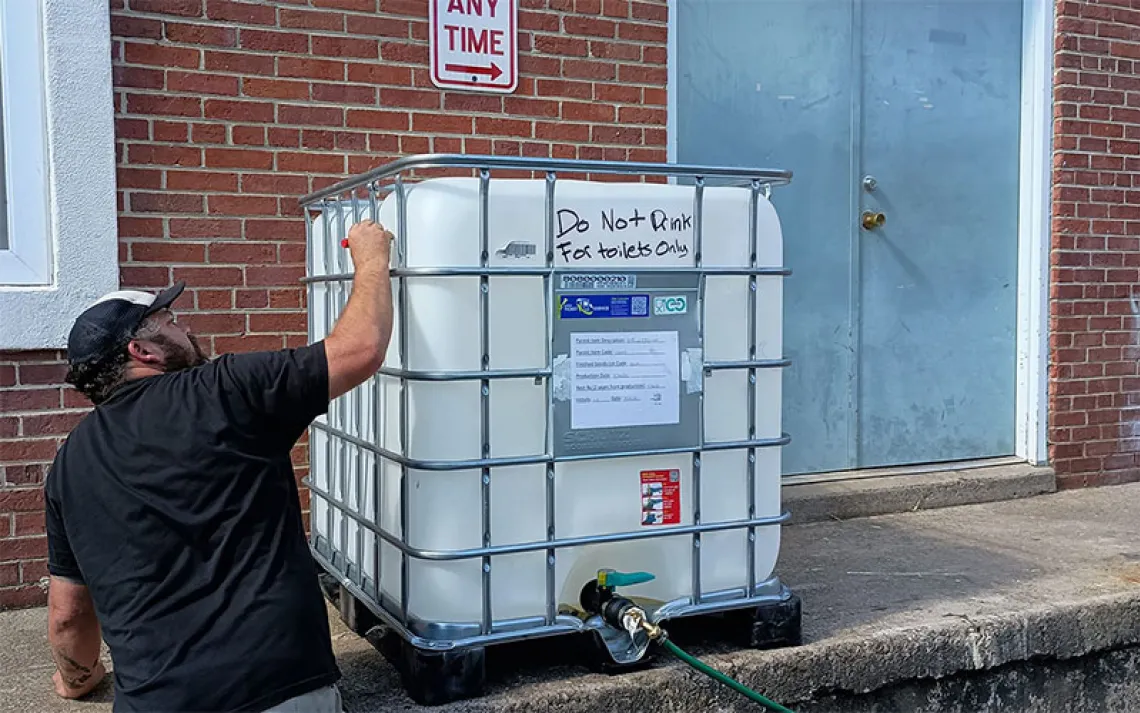States' Rights? Not When It Comes to Pipeline Permitting.
Trump administration looks to undermine states’ powers under Clean Water Act

Photo by black_shogun/iStock
The Trump administration appears poised to launch an effort to limit states’ powers to regulate energy projects like pipelines—but it will likely find itself in yet another legal battle if it does so.
The administration is reportedly considering whether to issue an executive order to make an end run around states’ ability to effectively block infrastructure projects that pass through their jurisdictions. Section 401 of the Clean Water Act allows states to block a project if they find it will endanger its waterways, and since Trump took office, some states have made use of this provision.
New York’s state government, for example, used the Clean Water Act to block a natural gas pipeline from the fracking fields of Pennsylvania into the Northeast. Washington State denied a permit for a planned coal export terminal on the Columbia River, citing the same provision.
“For an administration hell-bent on building as much fossil fuel infrastructure as they can, as fast as they can, it’s certainly true that 401 gums up the works,” said Pat Parenteau, who teaches environmental law at Vermont Law School. “If they can think of some way of ungumming the works, they’ll do it.”
The Trump administration has made “energy dominance” a guiding star of its domestic policies and has vowed to revive the flagging US coal industry and boost oil and gas production. The administration has rolled back regulations on fossil fuels, announced its intention to pull the United States out of the Paris Agreement, and moved to scrap higher gas mileage standards for vehicles. It also laid out a goal of getting major energy projects through regulatory approval within two years.
But the Clean Water Act’s language is “a direct grant of authority from Congress to the states,” Parenteau said. Which makes it harder to navigate around.
“They [administration officials] have no legal authority to direct the states how to direct their 401 authority or anywhere else,” he said. And a White House attempt to assert that authority is likely to face a swift challenge, he said.
The White House didn’t reply to a request for comment, but the administration’s Republican allies in Congress have complained about Section 401 in the past.
Senator John Barrasso, a Republican from Wyoming and the chair of the Senate Environment and Public Works Committee, proposed something similar in the last Congress. Barrasso complained that the Clean Water Act was being used improperly to block fossil fuel projects and, in the process, hurting coal and gas producers in his state and forcing northeastern states to import gas from Russia.
“It makes no sense for America to import liquefied natural gas from our adversaries, Russia, when we have that resource right here at home,” Barrasso said at a hearing last August. “Using the Clean Water Act simply to delay important projects was clearly not what Congress had in mind when Congress passed the law.”
But Barrasso’s plan to revise Section 401 of the Clean Water Act quickly ran into opposition from a coalition of groups that included the Western Governors Association, the Association of Fish and Wildlife Agencies, and the Council of State Governments. They urged congressional leaders to spike any bill “that would diminish, impair, or subordinate states’ ability to manage or protect water quality within their boundaries.”
“States have primary legal authority over the allocation, administration, protection, and development of their water resources,” the organizations wrote. “Responsible growth and development, as well as proper environmental management, depend upon the recognition and preservation of state stewardship.”
The bill never made it out of committee; Barrasso’s office didn’t respond to questions about whether he planned to introduce it again.
In the meantime, environmental watchdogs continue to try to use the Clean Water Act provision to stop energy infrastructure projects. In New Jersey, campaigners are trying to convince Governor Phil Murphy, a Democrat, to oppose a planned gas pipeline across that state and under Raritan Bay to Long Island. Junior Romero, the central New Jersey organizer for Food and Water Watch, said his organization’s efforts “could all be threatened by Trump.”
“I doubt he can get anything passed in Congress, but taking [New Jersey’s] rights away would just be disastrous for the densest state,” Romero said.
The Federal Energy Regulatory Commission (FERC) approved a final environmental impact statement for the project, known as the Northeast Supply Enhancement Project, in late January. Romero said the project includes a high-powered compressor station outside Princeton and warned that the proposed route could disturb heavy metals and other industrial contaminants that have been buried for decades in the nearby shores.
“So all those trapped heavy metals are going to be released back into the water,” said Romero, who testified in support of a state assembly resolution opposing the project. “There is marine life in Raritan Bay. Whales have started showing up again now that it’s finally getting cleaned up. . . . All of that could be threatened by the construction of this pipeline, as well as the communities that live off the island where the pipeline would go to.”
Pipeline advocates say the project is necessary to provide power and heat to customers in New York and beyond, and FERC says the project’s builders have addressed water quality concerns.
Parenteau said states usually end up green-lighting pipelines. North Carolina and Virginia environmental agencies have signed off on the controversial Atlantic Coast pipeline despite intense opposition from environmental organizations—including the Sierra Club—and some landowners along the route. But state action can delay projects for months or years; recent decisions by three federal appeals courts have put pressure on states to make decisions within 12 months.
Parenteau said the Environmental Protection Agency could also try to change the water-quality standards states use to judge a project’s impact, but that’s a longer-term prospect that’s likely to end up in court.
“I don’t know what they think they’re going to be able to do, but that’s the legal framework in which they’re operating,” he said.
 The Magazine of The Sierra Club
The Magazine of The Sierra Club



